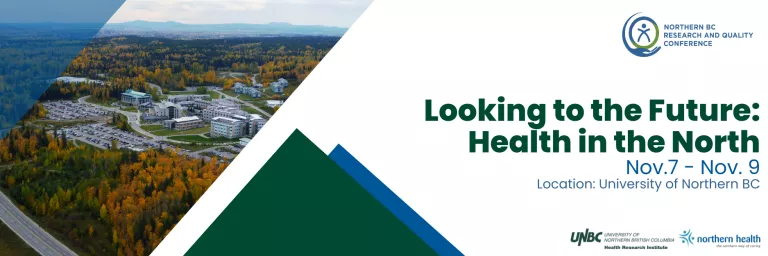
Concurrent Session A
Date: November 8
Time: 11:00am - 12:00pm
Location: University of Northern BC, Bentley Centre
Theme: Cultural Safety & Health Equity
Ibolya Agoston
Title: Religion and Spirituality in Diverse, Equitable, and Inclusive Workpaces - review of current practices and literature
Objective: To provide an overview of current practices in accommodating religion/spirituality in the workplace Explore considerations for creating inclusive, diverse, and equitable workplaces that facilitate various religious, spiritual, non and none religious beliefs
Methods: Review current practices in accommodating religion/spirituality perspectives in secular healthcare workplaces. Consider possibilities for inclusive, diverse and equitable workplaces by exploring concepts of “deep equality”, “agonistic respect” when accommodating the views of the religious, spiritual, non and none religious.
Lessons Learned:
- Multiculturalism is a core Canadian societal value.
- Not all cultures recognise the difference between religious and secular beliefs.
- Workplaces are becoming increasingly multiculturally diverse.
- Leaders and managers are confronted with a new diversity in the workplace.
- Duty to accommodate practices are limited to equal employment opportunities, focused on fairness, and seek to end discrimination.
- Duty to accommodate practices do not address diversity, equity, and inclusion of the multicultural workplaces.
- An organizational cultural shift is required to find new ways of being and working together in secular workplaces, respectful of various beliefs.
Nicole Halbauer & Michelle Roberge
Title: H.E.A.L. Healthcare: An Overview of the Hearts-based Education and Anti-colonial Learning Project
Description: Longstanding and well-established health disparities exist because of racist, colonial, able-body/minded, geographic, economic, and gendered inequities. This short presentation provides an overview of a project (H.E.A.L. Healthcare), centered in Northern BC and unfolding across Canada, that brings together artists, writers, activists, and people with lived experience to create arts-based anti-oppression learning materials for healthcare educators, professionals, and practitioners wanting to address biases and ‘-isms’ that permeate healthcare systems and culture. The presentation will offer insights about building national relationships, about working from Northern BC on large-scale national projects, and about producing arts-based learning materials for healthcare. We will also discuss how to build partnerships that result in online, downloadable curricular materials like videos, podcasts, storybooks, poetry and visual art.
Method: Community-based, qualitative, Indigenous-informed, and relational methods were used to cast a nation-wide net that captured experiences and biases that impact people each day within the healthcare system. Contributors from across the continent are developing works and curriculum materials that use art and prompts to ask questions about ableism, racism, ageism, gender bias, environmental racism, sexual trauma, addiction, and obesity in the healthcare system. Innovating platforms for knowledge dissemination are being developed.
Lessons Learned:
- Biases are not experienced in isolation – contributors often tackle the intersectionality of biases when accessing healthcare.
- Using arts-based curriculum to address biases in healthcare is a unique approach to a complex and embedding system of racism and bias.
- Having a wide range of arts-based medium will broaden the accessibility of this curriculum to healthcare providers.
Objectives: In addition to learning about arts-based teaching in healthcare, participants will take home one of the arts-based learning tools to work through to confront their own biases.